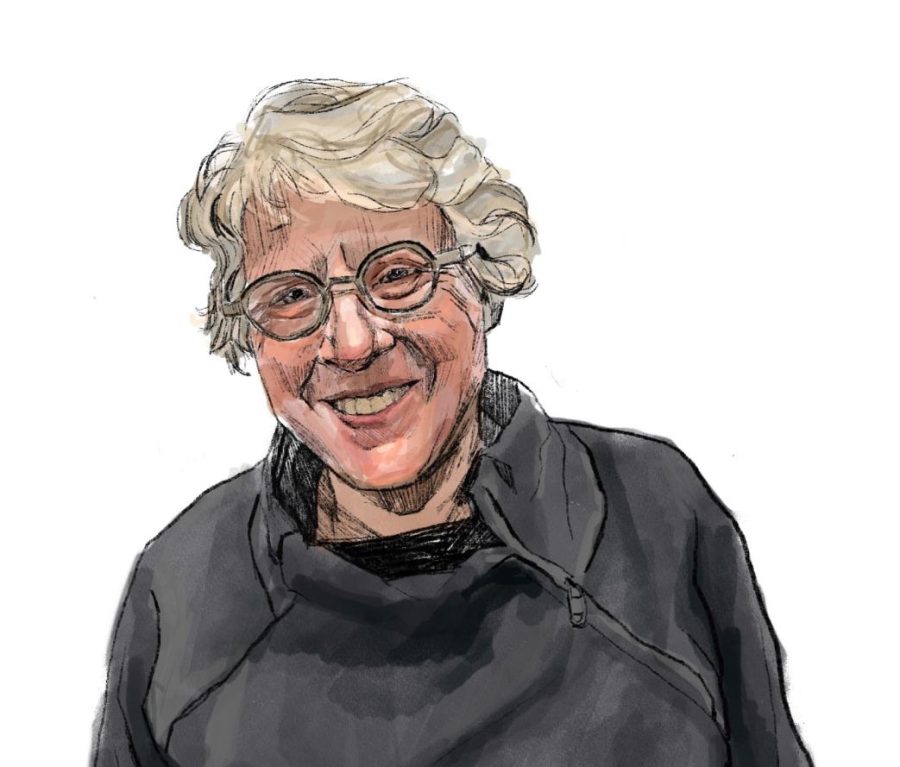Illustration by Hana ito
Ms. Krauth: Celebrating Black History in Japan
In a sentence, what is Black History Month?
Obviously, I’m into the historical answer to that: it’s a 1920s movement to give African Americans the history—the real history—they never had.
That is, to celebrate accomplishments and their part in American history. And now with attempts by many people to once again silence those histories and those celebrations, it becomes even more important.
“Black history in Japan” feels, ostensibly, like an incongruous phrase. What is the relevance of celebrating black history in Japan?
I think it has to do with what I’m trying to teach [in Japan Seminar], and that is the importance of all histories to understand the present. Because we’re the American School in Japan we must understand this egregious example of a whole population that was enslaved and that continues to live with the repercussions of that slavery.
Now in 2023, those histories and celebrations are trying to be silenced. Why wouldn’t it be relevant to everybody in the world? It’s relevant even to Japanese people.
What are the lessons that could be learned from Black History Month and how can we apply that to modern Japanese political concerns?
Commemoration, silence, and “who gets to decide” are broad themes that are brought out by the discussions about Black History Month. They’re so relevant to Japanese society: it’s about who gets to decide what history is taught, who to celebrate, and who gets silenced throughout history, whether it’s women, Koreans, Ainu, or Okinawans.
What role does being an international school in Japan play in how we celebrate American Black History?
You know, that name always comes up and that is the American school. I think our role as a community sending is to send off students to America having prepared them for reality. I also see that as my role as a social studies teacher; how can you understand the reality of America without understanding the role that slavery played?
I feel like that’s a common complaint we hear frequently: some ASIJ alumni claim that they were not prepared for the culture shock they experienced after moving to the U.S. Why is that? Is there something about the culture here surrounding race and ethnicity that doesn’t exist outside of ASIJ?
This is not going to be a popular thing to say, but we are rich and we are the powerful elite.
We should be looking at the power structures that allowed slavery to happen, and we should be looking at the power structures right now that continue to play a role in who’s silenced and who gets to decide on histories.
It’s easier to talk about in terms of climate change. We’re supposed to ask kids to think about how they can save a plastic bag or practice an SDG when in fact, if you look at the research, we really need to go after the power structures. But we’re part of the power structure, so we don’t really want to go after ourselves.
So it’s the same kind of thing here: how many African American have ex-pat jobs? How many are part of the American Embassy community? The American military? It’s about how we are understanding what’s happening there and how things play out based on race. Really look at ourselves and ask “what questions are we not asking because we’re part of that ‘elite?’”
How should Black History Month be celebrated at ASIJ?
I think it’s trite at this point to say “it shouldn’t just be a month, it should be part of our everyday life,” because it’s not going to be part of our everyday life.
I think [Black History Month] raises questions about how to [teach Black history] it correctly. Do you do it just to check off a box? I don’t wanna do that. And there is a problem with just doing the celebration of African Americans and then leaving it at that, instead of an examination of why we even have to have a Black History Month.
At ASIJ, Black History Month is for us to examine current power structures and the ways that racism continues to play out. How do we contribute to that, and what can we do differently in the future?
Do we not already have opportunities to study that?
Those are classes and teachers, not a program, not an institution. That’s just some people; that’s not an institutional value.
What would an institutional value look like?
Wouldn’t it be nice to be reading “The Case For Reparations” by Ta-Nehisi Coates as a community and take a day to talk about that in the high school? Or reading Toni Morrison and taking that list of “banned books” as a list of recommendations? And then for two days let’s read those articles and books and see what we can write. It looks like that.
